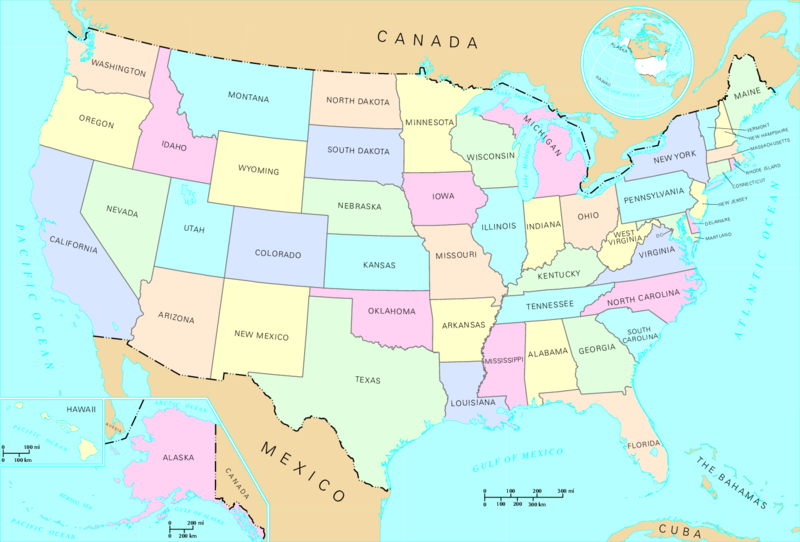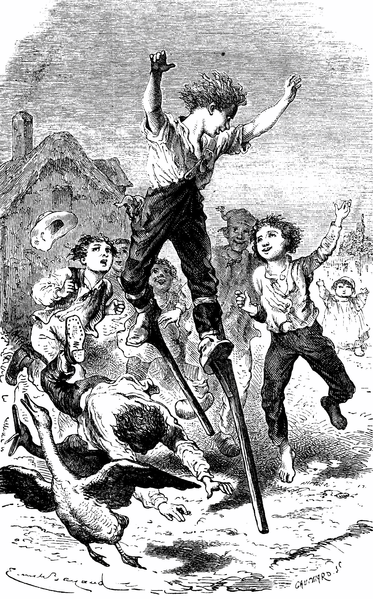I've been thinking a lot lately about the meaning of the word racism, especially as it is commonly used. There is an unfortunate tendency to think of racism as something you either are, or are not. So people who are racist believe that one race is superior to another, and people who are not racist do not. As a people with a profound history of white supremacy - only in the second half of the last century having actually removed legal racism from the books, this definition has served us well. But times have changed, and the old, strict definition is holding us back. It is very possible for people to consciously believe that white are not superior to blacks, yet still act in bigoted ways, showing prejudice & bias or supporting policies that are driven by racial animosity.
Racial attitudes have changed dramatically over the past 50 years. The vast majority of white Americans no longer believe that they are superior to minorities. They disavow their racist past and view Martin Luther King as a great American hero. They teach their children to judge people by their character, not their skin color. All of this would seem to be evidence that we, as a country have moved beyond racism.
In the 19th century, it was not strange at all to believe - publicly - that whites were superior to blacks. Facing increasing pressure from reasoned arguments of enlightenment skepticism, appeals were made first to religion, and then to the growing field of science. Passages were in found in the bible that seemed not only to sanctify the practice of slavery, but to elevate it to nothing less than God's work, as a way of bringing heathen Africans into the kingdom of heaven. Slavery was a favor being done for blacks.
No sooner were the means available, then the frontiers of scientific understanding were put to the task of justifying not just slavery, but white supremacy in general. As Carl Linnaeus laid the foundations of racial theory with his classification system, further efforts were made to then create racial hierarchies, with whites at the top, of course, and attribute negative qualities to the "African Race".
These narratives provided a sophisticated and coherent backdrop to white prejudices. Blacks were viewed as indolent, slothful, savage, odorous, incapable of intellectual thought, and generally inferior in every way to whites. They not only gave a reasoned explanation for the impulse of racial hatred, but contributed to its propagation.
Today these narratives are, thankfully, all but gone entirely. Yet a new, more insidious narrative has taken its place. Much like "intelligent design" has been an attempt by Christian fundamentalists to argue for a literal, creationist interpretation of the bible by wrapping it up in pseudoscientific claims, this new narrative seeks to explain persistent racial inequalities with appeals to reason. Yet not only does it lack even a shred of evidence, the evidence against it is profound.
On average, African Americans aren't as successful as whites. No matter which data points you look at - income, education, crime, health, longevity - whites are much more likely to do better. These socioeconomic disparities exert persistent downward pressure on the black community, which has struggled for hundreds of years to achieve equal levels of opportunity in America. The scientific explanation for this is that, as no real difference exists in the genetic intellectual endowments between racial groups, and as overt racial discrimination likely plays an insignificant role, these disparities exist as a complex process of socialization, creating "multiple pathways by which factors in the physical, social, economic, and family domains contribute to individual well-being;". This process continues generationally, as disadvantaged children become disadvantaged adults. Disparities in social capital become disparities in human capital, as emotional and cognitive deficits developed in relation to socioeconomically advantaged peers.
But an alternate explanation exists for these disparities, and is driven in large part by a desire to deny that society is at all culpable in the obviously tragic situation . At its root, it is based in the age old conception of free will: that, apart from direct external forces, man is free to determine what choices he makes in life. In this way he is responsible for his actions. To the extent that individuals could have made better, more productive choices, they have only themselves to blame. Society did not play any part in shaping their actions, and thus bears no responsibility for how events turn out. So drug addicts, criminals, single mothers, drop-outs, janitors, etc. deserve no help from society, as they made their own "choices".
The first obvious problem with this explanation is that if social pressures are removed from the equation, there should be no disparities in life outcomes. That is, if every man is a self-determined, rational actor, then no matter what sector of society you look at, you should see an equal distribution of outcomes. If there is no genetic difference between white and black intellectual or emotional capacity, then how do you account for persistent socioeconomic disparities?
Compared to whites, blacks are more likely to abuse drugs, commit crimes, drop out of school, engage in unhealthy lifestyles, spend money unwisely, parent their children poorly, have children out of wedlock, and general display dysfunctional behaviors. For a long time, liberals refrained from acknowledging this, as it seemed a confirmation of old racist notions about blacks. Coming out of the civil rights era, it made more sense to focus on the direct racism that blacks were still experiencing, such as job and housing discrimination. To admit that there was dysfunction in the black community seemed to affirm the bigoted notion that blacks were somehow genetically and/or ethnically inferior. However today, although direct racism does still exist, it is obvious that there is still a high level of dysfunctional behavior in the black community. And contrary to the notion that this is in any way an indictment of black genes or ethnicity, it is instead an indictment of America's continued failure to to properly rectify the legacy of poverty that it has created in the black community - either through direct discrimination or passive neglect.
Now, there is a principled argument that the reason Americans should not help the black community is not that they don't deserve it, but that the help would be at best ineffective, and at worst a hindrance to the development of intrinsically motivated self-reliance. Yet both of these arguments fail dramatically. Not only is there a need for actual alleviation of suffering in the short-term, but there is an enormous amount of evidence for programs that work to provide the necessary support for poor blacks to be successful. Simple programs like drug-treatment centers, day care, health care and job-training provide immediate support that alleviates some of the burdens of poverty. But more importantly, long-term emphasis on education can catch black children while they are still young and give them the resources they require to become successful. Home nurse-visits, and parent education classes, combined with health care and learning environments tailored to maximized cognitive and emotional development can make up up for structural disadvantages at home and in the neighborhood. Far from discouraging self-reliance, these programs seek to build-up the human capital that every child needs in order to be successful in life.
Yet all of this costs money. We continue to rely on a model that treats all children as if they are equal. We expect them to enter school equally as prepared, and make the same progress while there. And we expect schools to deliver this progress with the same financial resources. When they consistently do not, we blame the teachers or administrators. And to the degree that we blame the families, we do so in a manner that discounts the struggles they face. What we do not do, is take seriously these difficulties facing black children and their families, and seek to provide them effective support. Why not?
One reason is that we suffer from "remedial fatigue". We've seen good money thrown after bad. We've seen failures at every level. We've seen bad teachers and bad administrators. We've seen parents that seem lost causes. The problems can seem insurmountable, and a sense of hopelessness has a way of setting in. Yet this doesn't change the moral imperative. And it doesn't change the fact that there are programs out there that work.
But the other, more insidious reason for our social intransigence goes back to our stubborn insistence on the concept of free will. We feel that the problems in the black community are solvable if only black people take matters into their own hands and change. According to this model, any programs designed to help or support the poor are irrelevant. Yet as I have tried to show, there is no evidence to show that people are not entirely dependent on their cognitive and emotional abilities, which in turn are dependent on social learning. The problem with this view is not just that it is lacking in evidence, or in contradiction of reality, and generally reliant upon magical thinking, but that it leads to an acceptance of classic racist stereotypes and bigoted thinking.
It is a truism that all stereotypes have a grain of truth to them. What makes them hateful is the way in which they are extended to entire groups and then used as ad hominem cudgels to enforce the superiority of one group or another, either for dark pleasure or political gain. The racist stereotype of blacks liking watermelon has a kernal of truth to it: African Americans were originally southern slaves and both foods are common to the region. But the stereotype goes beyond this and seeks to tarnish all blacks as having an almost animalistic, instinctive preference to one food type. Further, the meme is associated with a tradition of negative portrayals of blacks where the food becomes a sort of secondary code for a larger, humiliating image of dim-wittedness, slothfulness, or sub-humanity. Stereotypes such as this serve an important purpose in the past: they objectify the target as both different and inferior to the subject. With blacks, they reinforced notions of white supremacy.
It is no longer the case that such crude stereotypes are acceptable in mainstream America. Such blatant appeals to white genetic or intellectual supremacy are considered by most to be not just taboo, but wrong. Yet what to make of the fact that blacks are more likely to indeed display many of the attributes that drove the old racist stereotypes? To the extent that racial disparities still exist across socioeconomic groups, it is a fact that blacks are more likely to be lazy, ignorant, uneducated, violent, or untrustworthy than whites. Yet this has nothing to do with genetics or ethnicity, and everything to do with group dynamics and socioeconomic structural inequalities. Were history somehow reversed, you could easily see whites more likely to live in ghettos, committing crimes, dropping out of school, doing drugs, etc.
In his book,
The Hidden Brain, Shankar Vedantam points to a well-known psychological phenomenon known as
illusory correlation :
the phenomenon of seeing the relationship one expects in a set of data even when no such relationship exists; when people form false associations between membership in a statistical minority group and rare (typically negative) behaviors.
This explains the tendency of so many to accept stereotypical views of blacks. Because a disproportionate number of blacks engage in negative behaviors, people are more likely to associate blacks in general with negative behaviors. In seeking to debunk old racist habits, society has developed a culture of self-reflectiveness in which one is always on guard against one’s own possible biases. The term “political correctness” describes the tendency of this self-censoring behavior to place unreasonable limits on free expression. The inherent controversy within this term lies in its reliance upon a subjective interpretation of what is or is not reasonable. To the extent that racism and bias are unconscious, they are explicitly not reasonable, as they arise from inaccessible areas of the mind. To the extent that one accepts the idea of free agency, one also denies unconscious bias; to be free from predetermination is to be free from unconscious forces. Thus, those most likely to accept free agency will also be the most suspicious of political correctness and the danger of accepting stereotypes.
If one believes that we are all truly free agents, it is not then unreasonable for one to become angry when those who are just as capable of making the right decisions as you, do not. When looking at the behavior of blacks and whites, it would seem quite frustrating that blacks continue to behave so differently than whites. The drugs, the crime, the delinquency, the poor parenting - all would seem inexplicable. Why don't "these people" act more responsibly? A common assertion among those who hold this view is to point to someone who appears to have had a disadvantaged life, and yet has managed to "do the right thing". Instead of seeing this as a miracle of luck and circumstance, it is seen as "the exception that proves the rule" - that everyone, again, has the same level of free agency.
This sense of frustration is only compounded when blacks are then offered a disproportionate level of services by the government. Considered undeserved or unwarranted, they are often referred to as "handouts", implying "something for nothing". Even worse, when based on a progressive tax structure, these government resources are disproportionately coming from those - according to assumed free agency - who are fundamentally more deserving. The moral question is clear: why should they surrender their "hard earned" wealth for those who choose poverty and dysfunction?
So as blacks are disproportionately behaving in frustratingly irresponsible ways, and seemingly being “rewarded” for it with sympathy and government services, this anger is directed disproportionately at blacks. In the past, when racism was a seemingly natural perception of reality, religious and scientific explanations were invented to justify it's truth. But today, an inversion of that dynamic has taken place. Ironically, while the assumption of free agency makes racism an inevitable conclusion in the face of racial disparities, yet racism is seen as taboo, free agency is appealed to as a way of transcending any racist conclusion: whites aren't superior to blacks - they just behave that way; blacks could be better if they wanted to. In this way, the free agency claim is a sort of "get out of jail free" card for racist indulgences. One is free to think what one wants about black behavior - getting as angry and sanctimonious as one pleases - while still holding out the fundamental belief that blacks are still just as capable as whites. They just have a funny way of showing it.
Yet if one sees black dysfunctional behavior, or any dysfunctional behavior for that matter, as the product of structural social forces that impede the development of healthy levels of human capital, the appropriate response is not anger but empathy and compassion. For instead of a frustrating lack of explanation for why this behavior exists in spite of clear alternatives, the sociological narrative provides a coherent description of why certain behaviors are chosen over others. Thus the crack addict, the prostitute, the abusive parent, the murderer becomes a victim of forces beyond their control. And to the extent that any race engages in such behavior with disproportionate frequency, it is not due to their race but historical socioeconomic forces.
For many, the suggestion that criminals are actually victims is a sort of blasphemy. It seems not only ridiculous but an insult to any actual victim, as well as a denial of simple right and wrong. But this is simply a failure to grasp the concept of socialization. Firstly, "right" and "wrong" have nothing to do with it. No one is saying that a crime, or dysfunctional behavior did not occur. It is just that the chosen behavior did not originate with the individual. Just as the tree which falls on a house in a storm was not responsible for any decision to fall, but was pushed by the wind, dysfunctional behavior is is result of sociological development. Without ultimate free agency, the individual is little more than a tree. To extend the analogy, we can think of an individual who has received a large amount of positive cognitive and emotional learning as a tree with strong roots. Because possesses a high degree of human capital, he is more able to weather life's storms. By contrast, the individual with relatively undeveloped human capital has much weaker roots and is more susceptible to being blown over.
The next question becomes what to do about those who, because of their dysfunction, present a threat to social well-being. For those who present an immediate threat, we ought of course to lock them up. This serves both as a deterrent and a protection from future threat. The duration of punishment is certainly important, and apart from moral and practical considerations, we must keep in mind that the convict is himself a victim of circumstance. To this end, society must be entirely concerned with the structural forces that bear upon each citizen. to To the extent that poor parenting is leading to children without the adequate human capital be successful in life, we must intervene on their behalf. There are many ways of doing this that serve not only to strengthen the child's development, but also that of the parent and, ultimately familial cohesion.



















